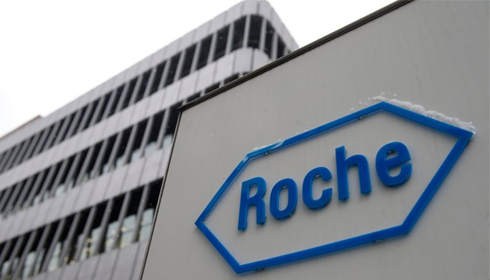
Roche Presents Promising Five-Year Data on Polivy Combination Therapy for DLBCL
Basel based Swiss pharmaceutical giant Roche has released intriguing follow-up data from the key phase III POLARIX study that spans five years. This is a major step forward in the treatment of diffuse large B-cell lymphoma (DLBCL). The American Society of Haematology (ASH) publicly discussed the results.
The POLARIX study looked at polatuzumab vedotin, which is sold under the brand name Polivy, along with rituximab, cyclophosphamide, doxorubicin, and prednisone (R-CHP) in DLBCL patients who had not been treated before. Based on a median follow-up of 60.9 months, the data revealed trends indicating improved overall survival (OS). This underscored the therapy's potential to transform the treatment of this aggressive lymphoma.
Commenting on the findings Roche's Chief Medical Officer, Dr. Levi Garraway, said, "POLARIX was the first trial to raise treatment standards for frontline diffuse large B-cell lymphoma in 20 years, and we are also encouraged by the five-year follow-up results." More than 38,000 people worldwide have received treatment with Polivy for R-CHP, demonstrating its potential to enhance outcomes.
The exploratory five-year study revealed that the Polivy combination outperformed the standard R-CHOP regimen in improving OS. Treatment with Polivy and R-CHP reduced the risk of death (HR 0.85; 95% CI: 0.63–1.15). This was better than the three-year study (HR 0.94; 95% CI: 0.67–1.33). The study showed that people who received Polivy needed almost 25% fewer follow-up treatments like radiation, chemotherapy, or CAR-T cell therapy than people who received R-CHOP (38.3% vs. 61.7%).
The Chief of Lymphoma Service at Memorial Sloan Kettering Cancer Centre, Dr. Gilles Salles, said, "These results support the role of Polivy in combination with R-CHP as a standard of care therapy and its possible impact."
The study also demonstrated benefits for disease-free survival and progression-free survival (PFS), in line with previous findings. In addition, there were fewer deaths from lymphoma in the Polivy group (9.0% vs. 11.4% with R-CHOP).
Past studies found no new safety signals in Polivy's safety profile. Economic studies suggest that fewer relapses could lower the costs of caring for people with severe disease, which aligns with the fact that Polivy doesn't need more treatments as often.
Over 90 countries, including the US, EU, UK, Japan, and China, have approved the use of Polivy with R-CHP. Roche is trying to make it even easier to get, and they are still looking into new ways to combine Polivy with other drugs, like in the SUNMO and SKYGLO trials, to improve treatment outcomes.
The POLARIX study shows how important it is to improve early treatment methods for DLBCL, a condition that is still challenging to deal with even though there have been improvements. Researchers find about 160,000 new cases annually. New technologies like Polivy give people hope for longer-lasting remissions and better quality of life.
The POLARIX trial continues to gather more data, demonstrating Polivy's potential to transform the treatment of DLBCL. Roche's dedication to advancing haematology research positions it as a crucial player in addressing unfulfilled medical needs in this complex cancer.